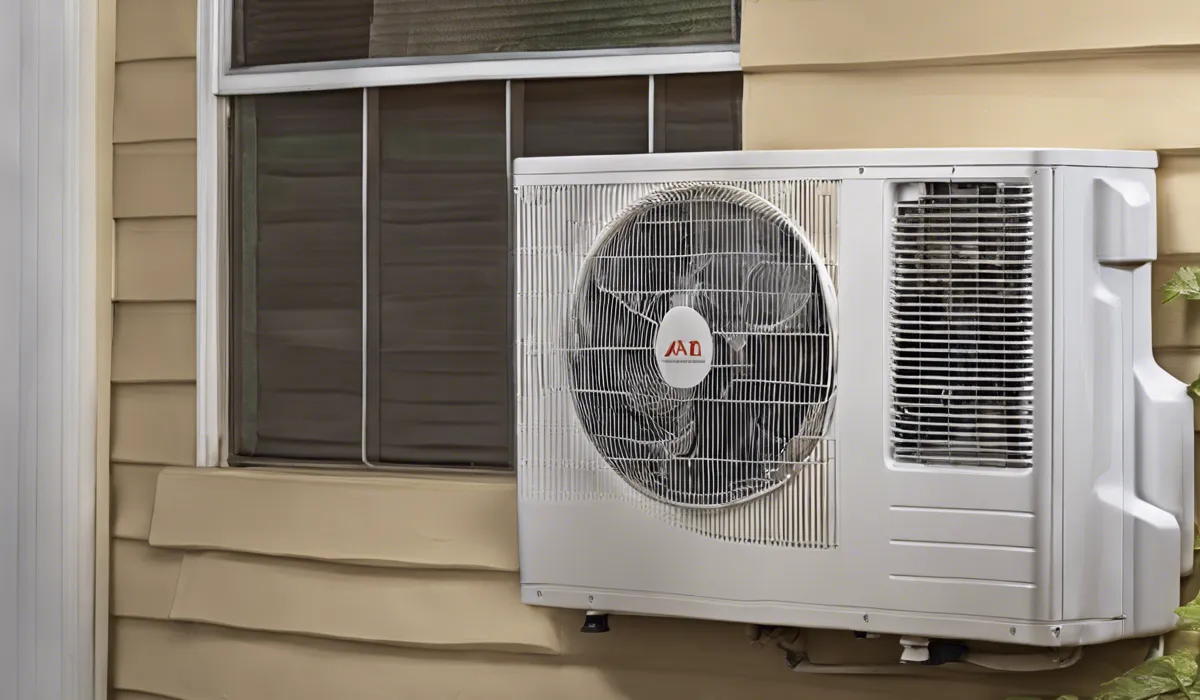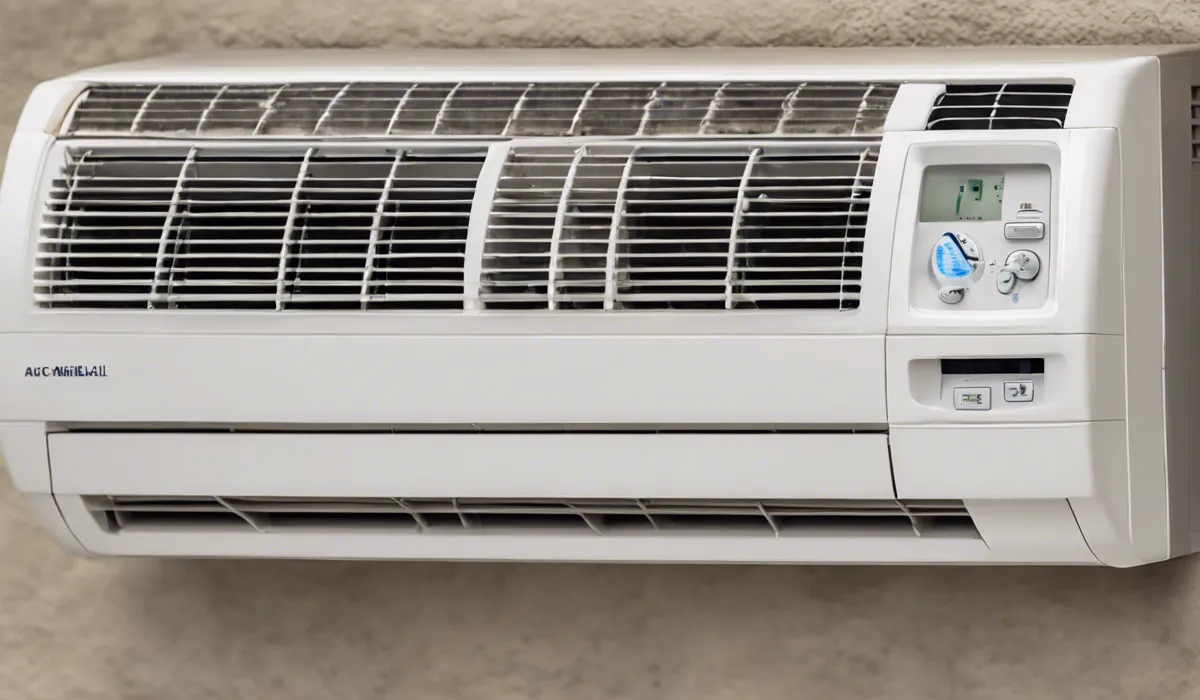Your AC smells like mildew because of moisture accumulation in the unit, which fosters mold and bacteria growth. This can result from a clogged drain line, dirty air filters, or a malfunctioning AC system that doesn’t properly dehumidify the air.
Causes of Mildew Smell in AC Units

Buildup of Mold and Fungi
When you notice a mildew smell coming from your AC, the most common culprit is mold and fungal growth.
This issue arises when moisture combines with warmth, creating an ideal environment for mold to thrive.
Let’s explore the conditions that lead to this problem and how it affects different parts of your AC unit.
Moist Environments in AC Systems
AC units inherently produce moisture as they cool the air. Components like the evaporator coils and the condensate pan can become wet during normal operation.
Without proper airflow and maintenance, these damp areas can harbor mold and fungi.
Warmth and Mold Growth
Besides moisture, warmth is another factor that encourages mold growth. Parts of the AC unit that are warm and moist are particularly at risk.
Understanding the balance between temperature and humidity is key to preventing the growth of mold.
Clogged Drain Lines
Clogged drain lines are a significant contributor to the mildew smell. When these lines are blocked, water cannot escape and becomes stagnant.
Stagnant Water and Odor Development
Stagnant water in AC units can produce a strong, musty odor that is often likened to mildew.
As the water sits, bacteria and mold begin to grow, emitting unpleasant smells into the air that is circulated through your home.
Dirty Air Filters
Dirty air filters do more than just reduce air quality; they can also be a breeding ground for mold spores.
Filter Contaminants and Mold Spores
Air filters capture dust, pollen, and other contaminants. However, when they become clogged, these contaminants can retain moisture and encourage the growth of mold spores, which contribute to the mildew smell in your home.
Lack of Maintenance
Regular maintenance plays a crucial role in preventing the buildup of mold and mildew in AC units.
The Role of Professional Maintenance
Professional maintenance is not just about fixing problems; it’s about preventing them. Technicians can identify early signs of mold growth and take steps to eradicate it before it spreads, effectively preventing the mildew smell from taking hold.
Health Impacts of Mildew in AC Units?

Respiratory Issues
Mildew and mold in AC units can have a direct impact on your breathing. Individuals with respiratory conditions like asthma may find their symptoms worsening due to exposure to mold spores.
Let’s look at how mildew affects the air you breathe and what that means for your health.
Effect on Asthma and Breathing
For those with asthma, inhaling air that has passed over moldy components can trigger attacks and increase the frequency of symptoms.
Even for those without pre-existing conditions, mold can cause respiratory discomfort and coughing.
Allergic Reactions
Mold and mildew can also cause allergic reactions in many people. These reactions can vary in severity and include a range of symptoms.
Symptoms of Mold Allergies
Common symptoms of mold allergies include sneezing, itching, and watery eyes. In some cases, individuals may experience skin rashes or a sore throat.
Recognizing these symptoms is important for addressing the root cause and improving indoor air quality.
Long-term Health Risks
Exposure to mildew and mold can pose long-term health risks, especially when the exposure is prolonged.
Chronic respiratory conditions and other serious health issues can arise. It’s vital to understand these risks to prioritize the maintenance of your AC unit.
Risks of Prolonged Mold Exposure
Over time, continuous exposure to mold can lead to more severe health issues like chronic sinusitis or even immune system disorders.
It’s important to take steps to mitigate mold growth to protect the health of you and your family.
Solutions and Prevention Strategies

Regular Maintenance and Cleaning
One of the most effective ways to prevent mildew in your AC is through regular maintenance and cleaning.
This includes both DIY steps and professional services. Let’s dive into why this is important and what it involves.
Scheduled Cleaning and Check-Ups
Setting a schedule for cleaning and servicing your AC unit can keep mold at bay. Routine check-ups allow for the timely replacement of parts and cleaning of areas prone to moisture buildup, such as coils and drain pans.
Improving Drainage
Proper drainage is essential for preventing water from becoming stagnant and turning into a breeding ground for mold.
Ensuring Proper Water Flow
Ensuring that water flows freely from your AC unit is key to preventing mildew smells. Regularly checking and cleaning the drain lines can prevent blockages that lead to water accumulation.
Air Filter Replacement
Replacing your air filters is a simple yet effective way to maintain good air quality and prevent mold growth.
Frequency and Benefits of Filter Changes
Changing your air filters regularly not only prevents mold but also improves the efficiency of your AC unit. Typically, filters should be replaced every 1-3 months, depending on usage and environmental factors.
Professional Inspection and Repair
There are times when a professional inspection and repair are necessary to address mold and mildew in your AC unit.
Understanding when to call in the experts can save you time and protect your home’s air quality.
When to Seek Professional Help
If you’ve tried the above solutions and still notice a mildew smell, it might be time for professional help.
Expert technicians can conduct a thorough inspection, identify the source of the problem, and take steps to eradicate mold and mildew from your unit.
FAQs About AC Smells Like Mildew
Why does my AC smell like mildew?
Your AC may smell like mildew due to moisture accumulation within the unit, which allows mold and bacteria to grow.
Can a clogged drain line cause a mildew smell in my AC?
Yes, a clogged drain line can trap moisture in the AC unit, leading to mildew smells from mold and bacteria proliferation.
How do dirty air filters contribute to a mildew smell in my AC?
Dirty air filters can restrict airflow, causing excess humidity and moisture to build up inside the AC, which fosters mildew growth.
Can a malfunctioning AC system cause a mildew smell?
Yes, if an AC system is malfunctioning and not dehumidifying the air properly, it can lead to increased moisture and mildew smells.
What can I do to eliminate the mildew smell from my AC?
To eliminate the mildew smell, clean or replace air filters, ensure the drain line is not clogged, and have a professional check for any malfunctions in the AC system.
Final Thoughts
A mildew smell from your AC typically indicates moisture accumulation within the unit. This damp environment promotes the growth of mold and bacteria.
Such issues often arise from blocked drain lines, unclean air filters, or a malfunctioning AC system that fails to adequately remove humidity from the air.
